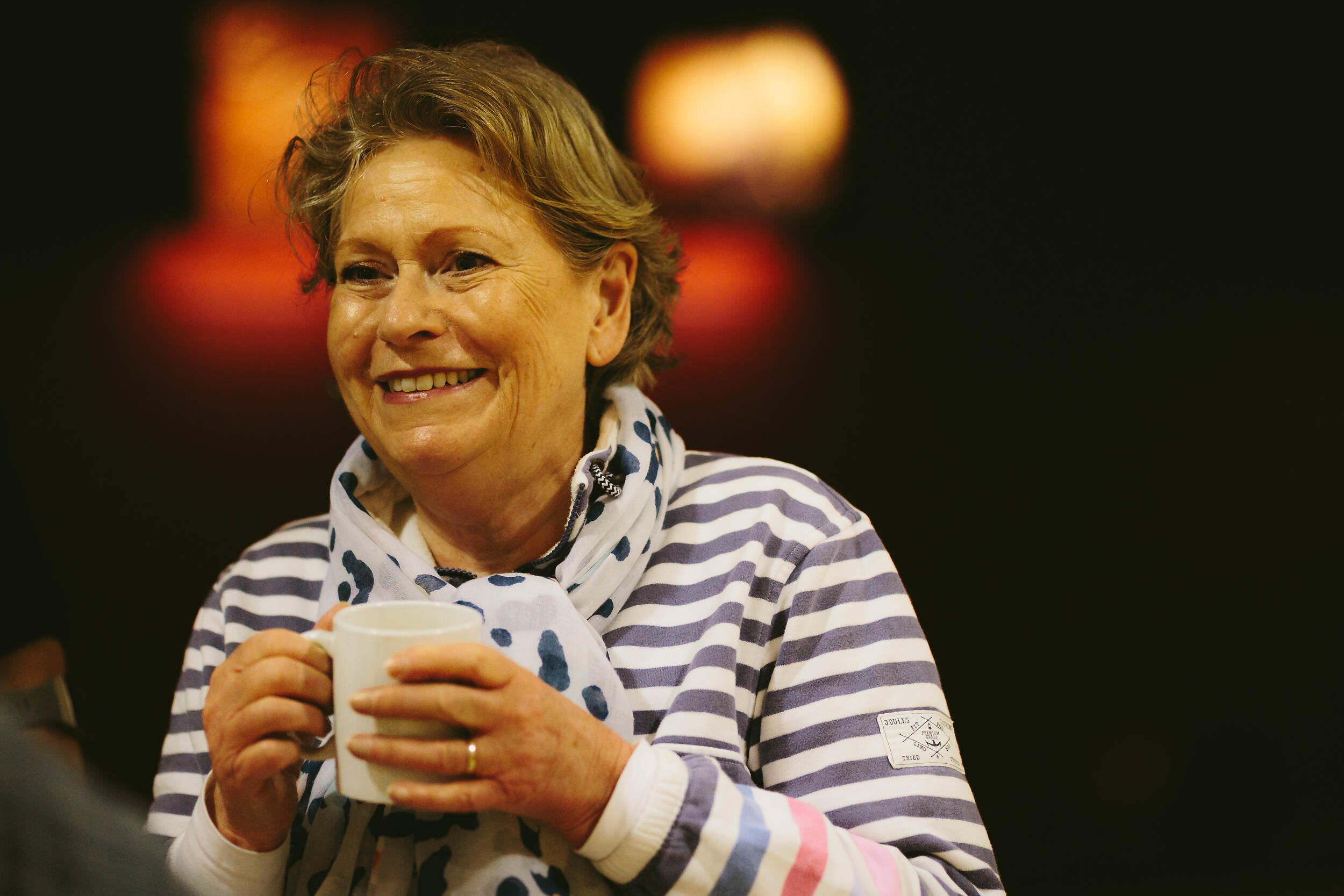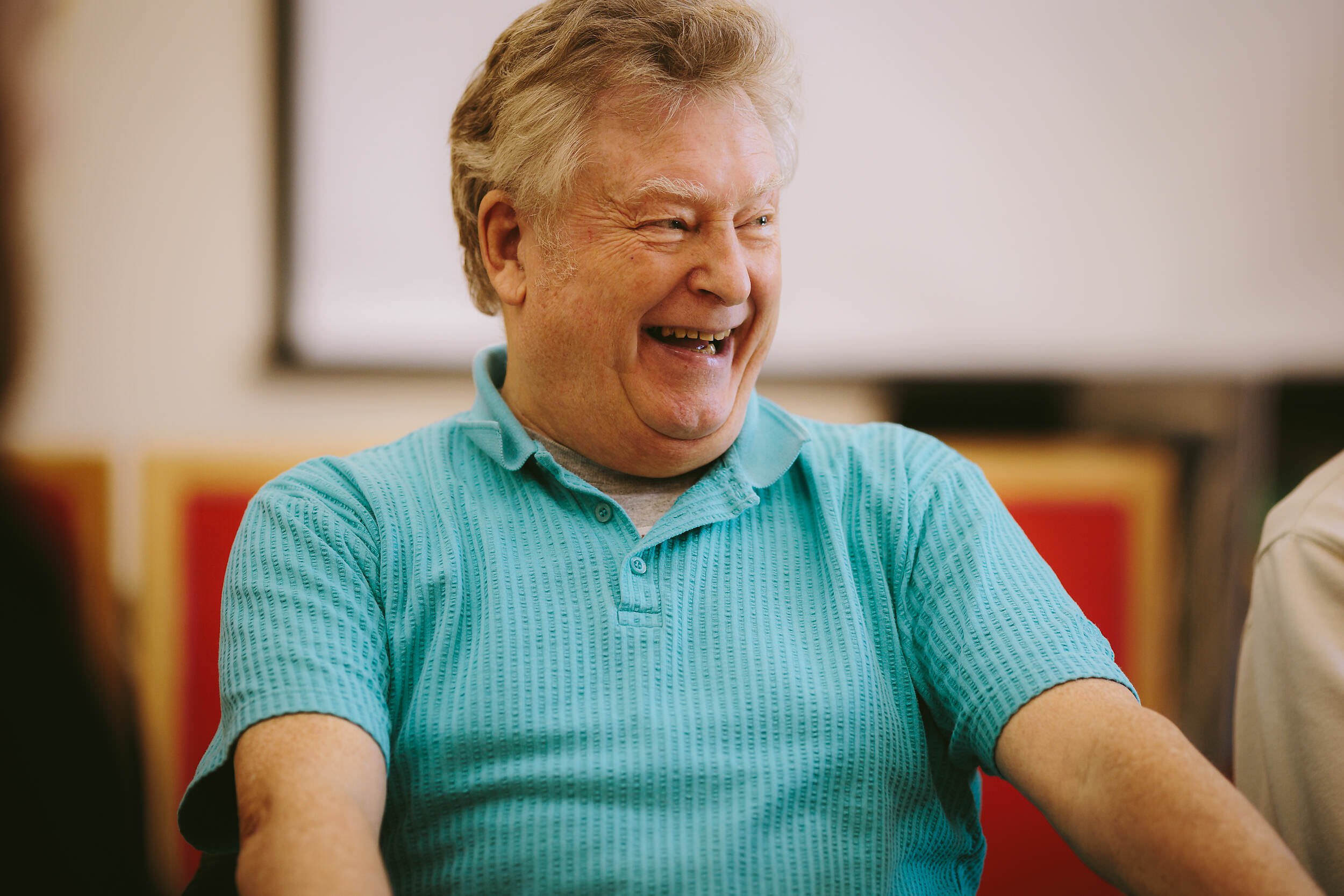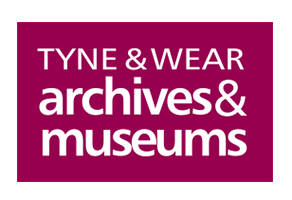Community programmes
For over 20 years we have developed inspiring museum programmes that recognise the positive health impacts of cultural participation. Our programmes connect creativity, health and wellbeing.
Our approach
Our programmes are mission-driven
"To welcome and connect people to the past, present and future of the North East through stories, shared spaces and experiences."
They are rooted in the five ways to wellbeing
- Being connected
- Being active
- Taking notice
- Giving to others
- Learning new things.
We listen, reflect, and respond to what people want and need within our programmes.
We work with partners to run projects, host special events, offer social prescribing opportunities, provide training, create resources to be used across sectors and much more. We do this in our venues, in the community, in clinical settings and online.
The four programmes
- Wellbeing - for promoting positive mental health recovery and general wellbeing
- Platinum - for over-55s
- Recovery - at the Shipley Art Gallery, for people in addiction recovery and/or people working with the Criminal Justice System
- Network - across North and South Tyneside, including working with older people, health and wellbeing groups and refugee and asylum seekers.
Wellbeing

We care about health and economic inequalities in the North East
The Wellbeing programme focuses on improving mental health and was created in response to public health data that states that the North East has higher levels of mental health problems compared to the rest of England.* We work with people, in lots of different spaces and with a variety of needs, from those in clinical settings, to connecting with people through community support services or providing activities for visitors to our museums and galleries.
We work alongside Health and Care professionals to design and deliver projects and creative activities to support better outcomes for people with ill mental health.
We can also deliver professional development opportunities so mental health staff can use museum collections and creativity within their own practice.
We believe in strategic partnerships and work with health and care professionals, local authorities, universities, charities and support services including:
- Cumbria, Northumberland, Tyne and Wear NHS Mental Health Trust
- Northumbria Health Care Trust
- Mind
- Mental Health Concern
- Recoco
- VODA
- North Tyneside Art Studio
- Search Older Peoples Project
"When I have things to get up for, it makes my depression feel better." Wellbeing programme participant
Opportunities include
- Working with museum staff to develop museum object displays in community settings
- Museum object handling activities
- Bespoke creative sessions and projects
- Co-produced community exhibitions
- Digital sessions
- Museum and gallery experiences - tours of exhibitions or behind the scenes
- Supported volunteering opportunities
- Creative resources to support mental health professionals working with their clients.
Find out more
To find out more about the Wellbeing programme contact: Clara Shield
*Data source: Public Health England - State of the North East 2018 report
Platinum

The UK has an ageing population
In 2016 over 65s accounted for 15.8% of the population. By 2066 this figure is expected to be 26%*
We have an ageing population in North East England too. Our Platinum programme specialises in working with people over age 55 – to improve their positive mindfulness, wellbeing, physical, social, and learning needs.
We believe in strategic partnerships and work with health and care professionals, local authorities, universities, charities and support services including:
- Age Concern Tyneside South
- Age UK North Tyneside
- The Angelou Centre
- Cumbria Northumberland Tyne and Wear Mental Health Trust
- Dementia Matters
- Elder’s Council Newcastle
- Newcastle Hospitals Trust
- Regional residential and nursing facilities
- Sight Service Gateshead and South Tyneside
- South Tyneside NHS Foundation Trust
- Your Homes Newcastle
Over the last five years the programme has worked with hundreds of partner organisations, and we have delivered over 180 sessions with over 3000 older people.
"My wife went into a care home with Dementia. If I didn't join this I wouldn't be here now. It saved my life." Platinum programme participant
Opportunities include
- Slow Museums - a relaxed visiting experience providing a safe space, support and time to think
- Working with museum staff to develop museum object displays
- Museum object handling activities
- Bespoke creative sessions and projects
- Museum Health and Social Care resources for carers and support workers to use with clients
- Training for Health and Care staff
- Meet at the Laing
Find out more
To find out more about the Platinum programme contact: Joanne Charlton
*Data source: ONS - Living longer: how our population is changing and why it matters
Recovery

The North East has the highest deaths linked to drug misuse in England - almost twice the national average*
We work in partnership with individuals and organisations across Tyneside to develop inspiring, creative projects that aim to support people in their recovery journey, by increasing confidence, wellbeing and promoting peer support.
To design our programme we collaborate with a variety of professionals and service users from organisations that support people in addiction recovery and justice recovery including:
- NECA (North East Council on Addiction)
- Recovery Connections
- Changing Lives
- The Road to Recovery Trust
- Streetwise Opera
- Northumbria Community Rehabilitation Company
- Search Chain Reaction
- Crisis Skylight
Since 2018 the Recovery programme has engaged with over 1,600 participants in recovery and support staff.
“I put my trust into this programme and you repaid that trust by listening to me, my ideas and everything else. It’s impacted my recovery in a good way.” Recovery programme participant
“Every client got to see a different side of themselves, not just recovery but the listening skills have grown, things they took for granted.” Gateshead Recovery Connections
Opportunities include
- Working with museum staff to develop museum object displays
- Museum object handling activities
- Bespoke creative sessions and projects
- Co-produced community exhibitions
- Digital learning
- Exhibition tours and behind-the-scenes tours
- Supported volunteering opportunities
- Creative resources for carers and support workers to use with clients
Find out more
To find out more about the Recovery programme contact: Ben Jones
*Data source: ONS - Deaths related to drug poisoning by local authority, England and Wales
Network

We fuse creativity with health and wellbeing to create a healthier, happier and more equal society
The Network programme supports a broad range of people who live, work or study on Tyneside. We develop collaborative projects with partners that challenge the expected heritage experience inside and out of our venues in new and exciting ways.
We support community cohesion and act as a catalyst for innovative and new ideas.
Since 2018 the Network programme has engaged with over 3,000 people through workshops, bespoke sessions, creative interventions and public engagements both online and in-person.
We collaborate with a variety of community groups and partners across Tyneside including:
- St James’ Heritage and Environment Group
- West Newcastle Picture History Collection
- Greening Wingrove
- Cycling UK
- West End Refugee Service
- Newcastle City Libraries
- Star & Shadow Cinema
- Blue Stone Consortium
- Museums Association
- Well Newcastle Gateshead
- Newcastle University
- Cumbria, Northumberland and Tyne and Wear NHS Trust
- Tyneside Beekeepers Association
- Methodist Homes Association (MHA).
Opportunities include
- Museum object handling activities
- Bespoke creative sessions and projects
- Co-produced community exhibitions, events and creative interventions
- Digital learning
- Museum and Gallery experiences
- Access to museum collections.
Find out more
To find out more about the Network programme, please contact: Michael McHugh



Social prescribing
The arts can help meet major challenges facing health and social care: ageing, long-term conditions, loneliness and mental health*
Access to the arts, culture and heritage is good for you.
The All Party Parliamentary Group on Arts, Health and Wellbeing published their Creative Health: The Arts for Health and Wellbeing report in 2017, stating a number of recommendations explaining how culture can contribute to health.
One of the most impactful ways that we can support these recommendations on an operational level is to offer Social Prescribing pathways.
We work closely with Link Workers, Primary Care Networks, and the Voluntary and Community Sector to offer a range of formal and informal social prescribing experiences across our service.
Opportunities include
Culture Health and Wellbeing Alliance
Tyne & Wear Archives & Museums is an early ally of the national Culture, Health and Wellbeing Alliance, an organisation devoted to developing opportunities across sectors to improve wellbeing through culture.
We act as one of the North East Regional Champion’s alongside other cultural sector colleagues from across the region.
Find out more
If a provision doesn’t already exist then maybe we can make it happen. We have nine venues, millions of objects, outdoor space, gardens, lots of tea and energy to make things happen – so get in touch!
To find out more, contact: Sophie Mitchell
*Data source: Creative Health: The Arts for Health and Wellbeing Report 2017